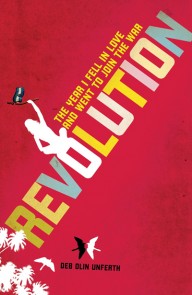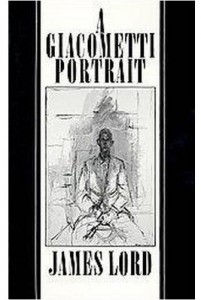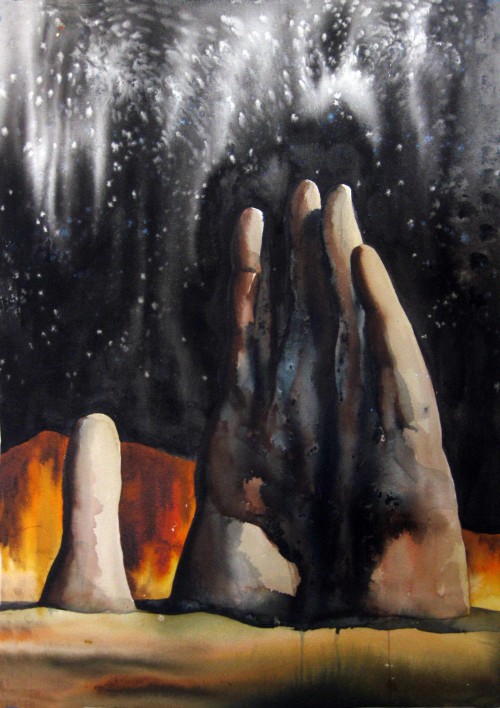6 Books: Deb Olin Unferth on Nonfiction
 In this week’s installment of 6 Books, Deb Olin Unferth, author of the brilliant, laconic memoir Revolution, recommends 6 nonfiction books. Here are her picks:
In this week’s installment of 6 Books, Deb Olin Unferth, author of the brilliant, laconic memoir Revolution, recommends 6 nonfiction books. Here are her picks:
To After That (Toaf) by Renee Gladman
It’s a book dedicated to a book she has written: what is a cooler premise than that?
Parrots for Dummies by Nikki Moustaki
Yes, from the Dummies series, a simple how-to book: feeding, cleaning the cage, etc., but stay with me here. I found the book very moving. Her portrait of the parrot is of a tragic figure in a cage—it feels almost Kafkaesque. She captures the personality of the parrot as a beautiful, complex, panicky person who you’d do anything for in hopes that it’ll fall in love with you. And there’s also the sadness of the author, who you can tell is struggling: she has to write about clipping, though she mostly hates it. She has to talk about breeding though she thinks it’s a terrible idea. She includes pictures of birds flying in the Amazon—there, isn’t that beautiful? Isn’t that where they belong? They fly a hundred miles a day out there, while here they can move only a few feet. Which is better for them, do you think? she wonders.
Changing My Mind by Zadie Smith
This book has shown up on so many lists now that it’s almost like putting Consider the Lobster on this list. But I’m including it here because you know what? Zadie Smith is a badass.
The Autobiography of Alice B. Toklas, by Gertrude Stein
 This may be my favorite book of all time. This is the book that made all my short shorts possible, that made my memoir, Revolution, possible. I first read it riding a train to Chicago and I’ve never been the same. How to write about war and make it funny. How to write about furniture and make it sad.
This may be my favorite book of all time. This is the book that made all my short shorts possible, that made my memoir, Revolution, possible. I first read it riding a train to Chicago and I’ve never been the same. How to write about war and make it funny. How to write about furniture and make it sad.
A Giacometti Portrait, by James Lord
For Lord—who agreed to sit for a portrait for Giacometti—what initially seemed like a pleasant afternoon turned into an existential nightmare, as Lord discovered just what “finishing” a portrait meant to Giacometti.
Atlas of Remote Islands, by Judith Schalansky
How can descriptions of islands far, far away—islands that I’ll never visit, islands that the author has never visited—feel so lonely?
Gucci Slope Revolution Ding Divide People

Flex Sex Drugs Money Cars Clothes Plenty of Women & Ice Cream
1. The 47th issue of Slope is up and live and overflowing with yes.
2. For NYers, on Feb 2, hit up the release party for Deb Olin Unferth’s new memoir, REVOLUTION: The Year I Fell in Love and Went to Join the War, co-hosted by the Believer. She’ll be discussing the book with Believer co-editor Heidi Julavits. 7–9pm at Powerhouse Arena.
3. Luca Dipierro has released an object made of paper full of drawing called DAS DING.
4. Redivider is running their first annual fiction contest, open until March 1
5. At Thought Catalog, The Different Types of People There are on the Internet.
You Are Not the Only One Writing About Mondavian Zookpeepers
This is one of about 30 “Random” posts on the front page, but here goes nothing: Chloe Cooper Jones conducts a pretty spectacular dialogue with co-stars George Saunders and Deb Olin Unferth over at The Faster Times. Inspiring considerations of the contemporary MFA program abound. George Saunders gives us the only googlable instance of “kicking entities,” which we ought to deem an idiom among idioms, even if I’m not sure what it means. Really, the hope here gets me giddy, and it’s something for sure of which this “literary culture” could use a more healthy supply. Deb Olin Unferth puts it beautifully:
You can look at any space, at any group of people, and see dreariness, self-absorption, the long trod to death. Or you can look at the same space and people and see longing, hope, heroism, and disappointment that will break your heart. If you squint just right at an MFA program, you see both. You see the lifeless side—maybe the student who isn’t finding her voice or the teacher who is just “going through the motions”—and the side that shines and beats.
November 15th, 2010 / 11:06 pm
Night of the Week of The Lifted Brow, Part 2

"The Hand of the Desert" by Michelle Blade
Today’s selection from The Lifted Brow #6 is a collaborative short story by Deb Olin Unferth and Clancy Martin. Seriously, what else could you possibly need me to say to you about that? (Except maybe to remind you again that Deb is reading tomorrow night at Broadway East, with me and Tao Lin and several other fine folks, to celebrate the Rumpus 1 Year Anniversary.) Okay, “Nicaragua” begins below.
January 20th, 2010 / 10:34 am
A (a dude, in midst of an actual conversation): Wait, Deb Olin Unferth isn’t famous.
C (another dude): She’s not? Of course she is. She’s famous.
A: Famous why? Because she had a book out with McSweeney’s and was in Harper’s?
C: People know who she is.
A: Writers know who she is. That’s not famous.
C: Famous, fine. She’s a buzzball. People talk about her. She’s famous enough.
B (a jew dude): Nobody is famous unless my grandmother knows who it is.
C: So are there any famous writers?
B: Philip Roth.
Deb Olin Unferth’s “Wait Till You See Me Dance” is the featured short fiction in this month’s Harper’s. A thousand huzzahs.
The Rumpus on Shane Jones and Stanley Crawford
 Justin Dobbs tipped us off that The Rumpus had published last week a nice review of Shane Jones’ Light Boxes. Jovanovic writes:
Justin Dobbs tipped us off that The Rumpus had published last week a nice review of Shane Jones’ Light Boxes. Jovanovic writes:
Jones makes use of ambiguity and possibility in the fabulist tradition of Gabriel García Márquez, but Light Boxes should not be considered a magic-realist novel. The sidereal reality of Thaddeus and The Solution is not simply one where magical elements are introduced into ordinary settings, like the man vomiting rabbits into flowerpots in Julio Cortázar’s “Letter to a Young Lady in Paris” (though Thaddeus does vomit ice cubes)—in Jones’s novel there are few touchstones to the world as we know it. Light Boxes partakes in the traditions of folklore, archetypal myth, and oral history, a pedigree reflected in its images and descriptions. Clouds have legs and shoulders. They are shaped like a hand and can fall apart like wet paper.
Dobbs’ email reminds me that I need to read The Rumpus more, because likely I’ll find good stuff over there, such as this blog post by Deb Olin Unferth on Stanley Crawford’s The Log of the S.S. the Mrs. Unguentine.
If I had to make a small, partial statement here about book reviewing, I’d say this: I find that the most effective reviews (those that affect me most, I mean) tend to be the reviews that make me remember how much I enjoyed reading a certain book (for some reason, I rarely read reviews of books I haven’t yet read?). And I’m using ‘reviews’ here in the loosest sense. Jovanovic’s review and Unferth’s blog post both do this. I enjoy reading another’s telling of his or her experience of a book and I enjoy the connections that telling ignites in my head.
Is this a stupidly simple appreciation of book reviews? Probably.
May 14th, 2009 / 11:14 am
Cover to Cover: NOON, Part 2

(Did you miss Part 1?) Yesterday I taught Ernest Hemingway’s very short story “A Very Short Story” to my English 101 class. It was a pretty successful venture, I think. After teaching the story twice in as many hours, I got on the 4:26 New Brunswick->Penn Station train, and read “Pet” by Deb Olin Unferth.
There may not be quite a PhD dissertation to be written on similarities between Hemingway’s and Unferth’s work, but all the same, I found myself dwelling on how my two tours through “A Very Short Story” seemed to have primed me for “Pet,” which I heard Unferth read once but hadn’t yet myself read on the page.
April 9th, 2009 / 11:54 am
Deb Olin Unferth has a Daytrotter Session!!!!!

Okay, so this news is almost a month old, but I only just discovered it ten minutes ago. (Now overnight plus ten minutes, since I’m going to post this tomorrow.) ANYWAY. The point is that Deb Olin Unferth is badass, and so is Daytrotter.com, so the fact that they got together (apparently on 12/14/08) is just super exciting.
